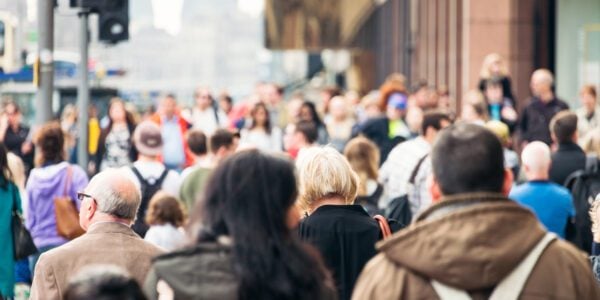Confusion over what people mean when they describe science, technology and medicine as ‘unnatural’ could be causing people to talk at cross purposes, hampering public debates, says the Nuffield Council on Bioethics today.
Ideas about naturalness have got everyone talking this year: people expressing their wish to use, consume or practice things they would describe as natural, and criticising or condemning things that they see as unnatural (for example, assisted conception, genetic modification, cloning). “How dare you refer to my beautiful children as ‘synthetic’?” tweeted Elton John in March 2015 in an argument with Dolce and Gabbana. Bishop Keenan of Paisley argued that a technique to prevent mitochondrial DNA disorders “distorts the natural process of fertility” when it was being debated in Parliament in February.
A new report from the Nuffield Council on Bioethics sheds light on the different ways in which people use and understand this concept in debates about science, technology and medicine. The Council sets out five understandings of naturalness that show the different ways in which the terms natural and unnatural are used:
- Neutral: a neutral/sceptical view that does not equate naturalness with goodness
- Wisdom of nature: the idea that nature has found the correct or best ways of doing things and should not be ‘tampered’ with
- Natural purpose: the idea that living things have natural purpose, essence or functions which is linked to what is good for them and which science shouldn’t seek to change
- Disgust and monstrosity: a response of disgust, revulsion or fear prompted by novel technologies
- God and religion: the idea that certain technologies distort God’s creation or go against the will of God
“It is too simplistic to suggest that natural things are good and unnatural things are bad, yet we see many examples of this being implied through the media, in advertising and on the packaging of many products we buy. Our findings show that people use the terms nature, natural and unnatural to express a range of values, beliefs, hopes and fears”, said Roland Jackson, who chaired the Nuffield Council on Bioethics’ project on naturalness.
“People’s values and beliefs about what is natural or unnatural can have a major impact on how the UK responds to advances in science, technology and medicine. It is therefore vital that policy-makers, in particular, understand these values if they are genuinely to take account of the views of the public when developing policies for science, technology and medicine”.
Tom Shakespeare, a member of the Council’s Steering Group, said: “The use of these words by journalists, politicians and others to convey a good or bad view of science is lazy and clichéd. People often have genuine concerns, beliefs and values which should be answered, not just dismissed. Everyone involved in key debates about science should avoid using these terms, unless they are willing to explore and engage with the hopes and fears that lie behind them”.
The Council’s findings are informed by an analysis of how ideas about naturalness appear in the media and Parliamentary debate, and meeting with members of the public and experts such as journalists, Parliamentarians, Government officials, scientists and representatives of civil society groups.
With a concept that is so dependent on the use of language, contributions from poets have also formed an important part of the project. The Council commissioned new work by poet Kayo Chingonyi exploring the language of naturalness and organised a poetry competition in partnership with leading performance poetry organisation Apples and Snakes. The winning poems from the competition and Kayo Chingonyi’s series of poems are also published today.
More information on the Nuffield Council on Bioethics website >>
The Nuffield Council on Bioethics is an independent body that examines and reports on ethical issues in biology and medicine. It was established by the Trustees of the Nuffield Foundation in 1991, and since 1994 it has been funded jointly by the Foundation, the Wellcome Trust and the Medical Research Council.




















































